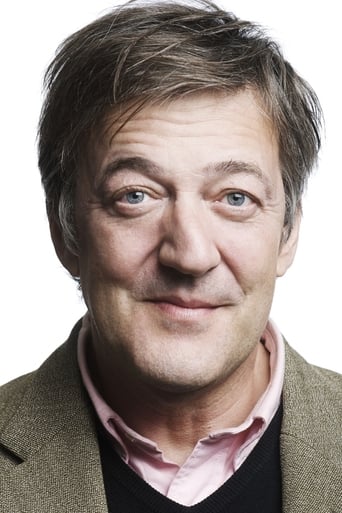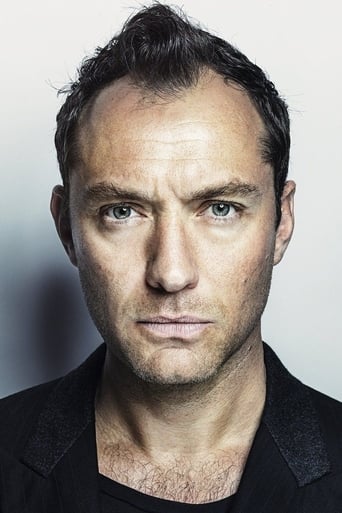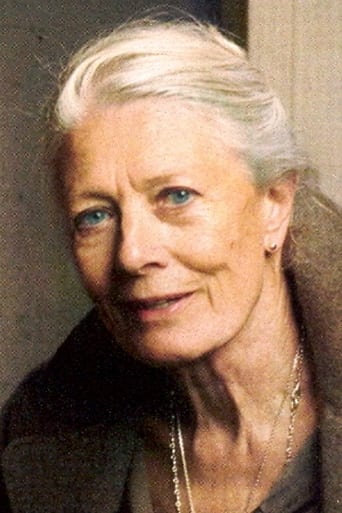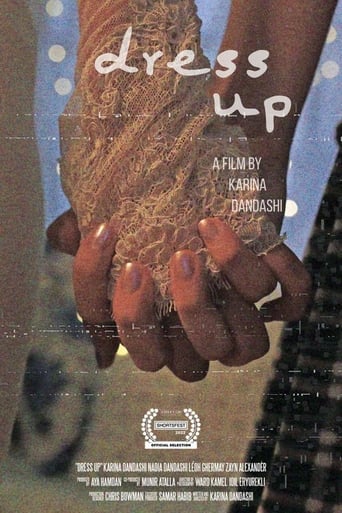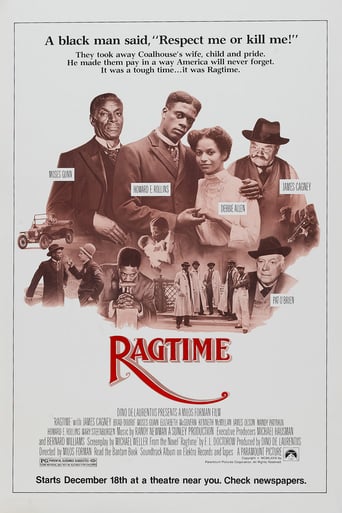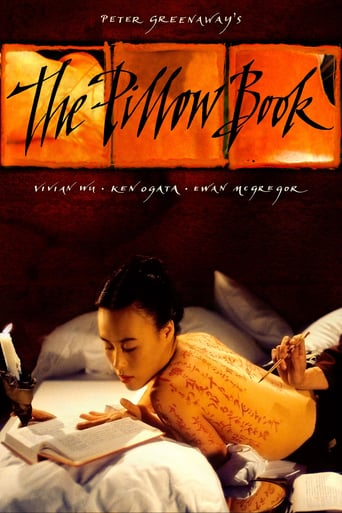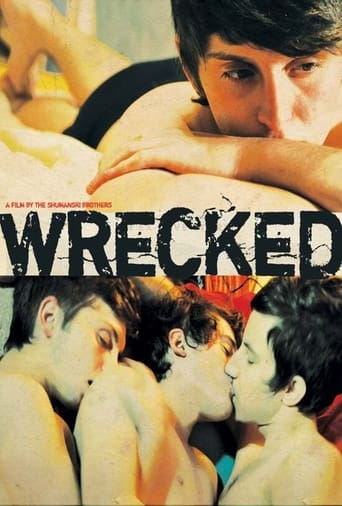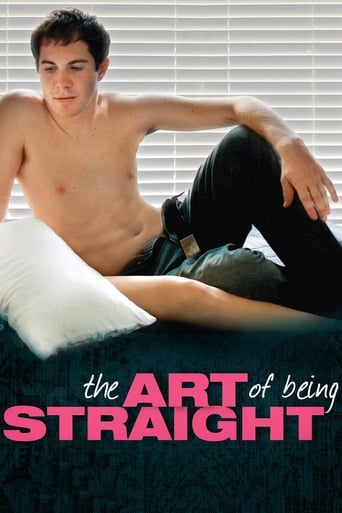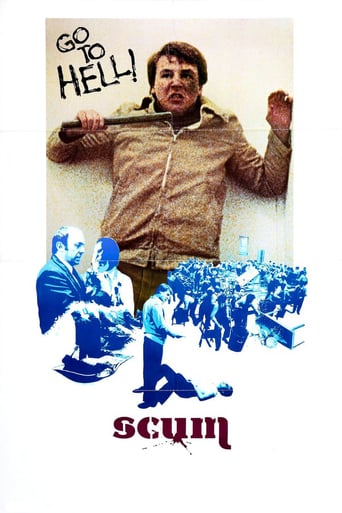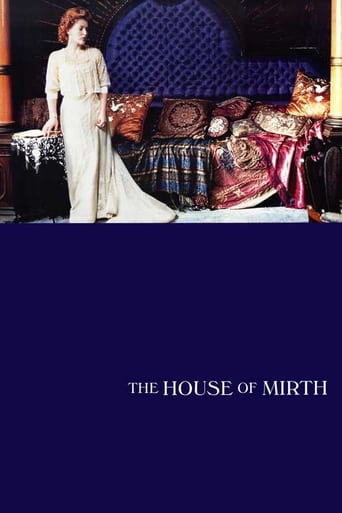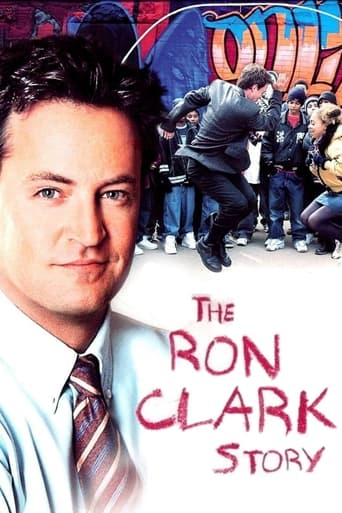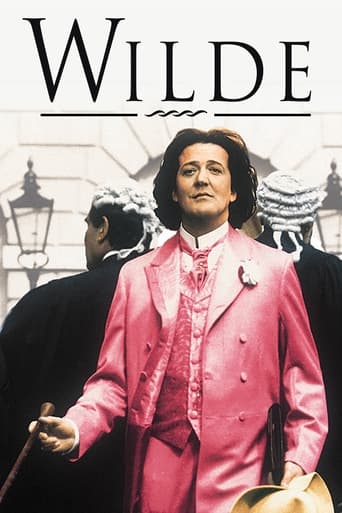
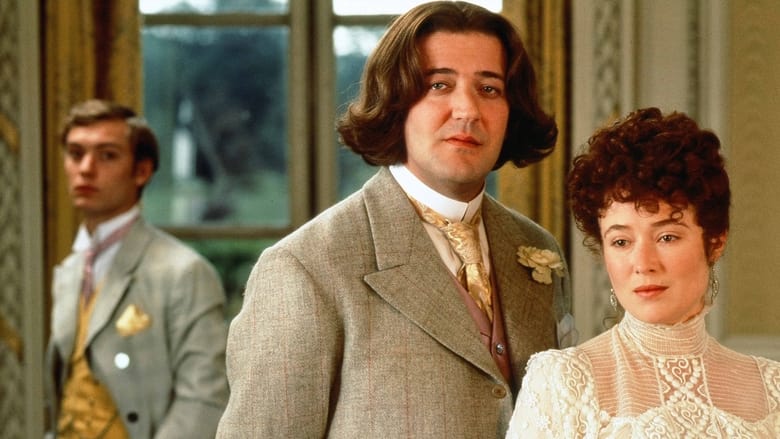
Wilde (1997)
The story of Oscar Wilde, genius, poet, playwright and the First Modern Man. The self-realisation of his homosexuality caused Wilde enormous torment as he juggled marriage, fatherhood and responsibility with his obsessive love for Lord Alfred Douglas.
Watch Trailer
Cast


Similar titles
Reviews
The Irish writer Oscar Wilde (Stephen Fry) returns to London from America and gets married with Constance Lloyd Wilde (Jennifer Ehle) in the Victorian England. They have two children, Cyril and Vyvyan, and he makes lots of money with his successful plays. He gets close to the young Robbie Ross (Michael Sheen) and "leaves the closet", assuming his homosexuality and having brief affairs with youths. When he meets the corrupt Lord Alfred 'Bosie' Douglas (Jude Law), he falls in love for the young man; but Bosie's father goes to the court accusing the writer "posing sodomite" and Wilde is sentenced to two years of hard labor. His health is affected by the unhealthy conditions in prison and he has a short life in Paris after being discharged from the imprisonment. "Wilde" discloses the faithful biography of the Irish writer Oscar, with great and bold performances, witty dialogs and a beautiful reconstitution of the life in the Victorian period. My only remark is the excessive and repetitive homosexual scenes with the visible intention of pleasing the gay communities, but totally unnecessary to the context of the story. The running time of 118 minutes is too long and boring but could be shorter with the edition of the foregoing sequences. My vote is six.Title (Brazil): "Wilde"
In 1997 Stephen Fry was enjoying an unprecedented surge of sympathy and reverence from the British public. Only two years previously he had abandoned a West End play after only three nights and fled abroad. The fuss that his episode created effectively ignited the conscience of the British people who, given the choice of vilifying a performer for acting (apparently) unprofessionally or sympathising with an overburdened national treasure chose the latter.This is an important story in relation to Wilde, released only two years later. Oscar Wilde was a character not only of similar physical attributes, intellect and sexuality as Fry but also with the same standing in relation to society (and specifically London society = the media). However, for all his popularity, Wilde's pecadilloes ultimately brought him public opprobrium and he fell foul of the law. Fry however rediscovered his confidence to assume a more exalted mantle in the estimation of the British public following Cell Mates-gate.This film is Fry riding that public affection - and failing to really return to love, frankly. Wilde is a more of a document than a drama, despite super turns from Jude Law as Bosie Douglas and Jennifer Ehle as Wilde's wife. It's a competent film but it doesn't touch me at all. Most strangely perhaps is that the film fudges an assessment of Wilde's standing in retrospect: neither the document nor the drama come down in judgement either way on the man or the life. Given the personal affection of Fry for Wilde it's all very odd. 4/10
I've watched this a number of times over the past few months on a satellite TV movie channel.It is charming, but Wilde fans will know how destructive he thought charm was.It purports to be factional, but it avoids many ugly truths about Wilde's life. That's not surprising in a politically correct world where gayness is held to be almost superior to heterosexuality.Today, Wilde would probably be even less tolerated than he was in those Victorian days. In 'intolerant' times, even until quite recently - the Fifties and Sixties - people turned a blind eye to all sorts of things as long as you kept it under wraps. Remember, in this movie, he was not hounded for his activities. The hotel staff knew what was going on, and the male brothels were not raided. He brought the court case, and his 'persecution', upon himself. Today, Wilde might be considered a paedophile. The film shows the rent boys as grown up men in suits and ties, when in reality the boys that he and Lord Alfred Douglas exploited with money were as young as 14.The sordidness of the evidence in court (faecal stains on hotel bedsheets) is absent in this sunnily-photographed movie. As is the fact that Wilde was syphilitic because of his adventures - not very pleasant for his wife.And this was, I'm sure, the true reason for the cessation of their marital sex life.If the film had been historically accurate, Fry would have been shown with black teeth in later life - this was a side effect of the mercury treatment at the time for syphilis.Not very charming.The movie also ignores the main reason for Wilde's obsession with Bosie. Like many middle class people of the time who were successful in the public arena, he craved the approval of the aristocracy. He was a snob in the true sense of the word, and sucking up (pun intended) to the upper classes and the presumption that they are better beings comes out in his work as well as his life.On the plus side, I thought Tom Wilkinson's performance as the Marquis of Queensbury was brilliant and very true to how a tough old Victorian aristocrat would have behaved.A much better portrayal than earlier ones which dismissed him merely as mad.
The mid-life years of (now genteel) decadent behavior by one of late Victorian England's celebrities, the Irish-born novelist-poet-playwright Oscar Wills Wilde (1854–1900). Director Brian Gilbert doesn't bandy about giving us the childhood torments of a literary genius; instead, he and screenwriter Julian Mitchell delve right into the more prominent chapters of Wilde's life, his marriage to a woman--producing two children--before realizing his homosexual desires, leading to some promiscuous indiscretions before finding love with churlish, childish poet Lord Alfred Douglas. Stephen Fry gives a masterful performance as Wilde, and the portrait allows for many shadings (this isn't a plea for the misunderstood gay artist, as Wilde himself is shown to be occasionally fickle, lusting, and selfish). Jude Law is equally good as ornery, demanding lover 'Bosie', whose tyrannical father brought about a court-case and two-year jail term for Wilde (covered previously in 1960's "The Man with the Green Carnation"), contributing to his early demise. A provoking, insightful, eloquent film--not at all stuffy or coy--which is due in large part to Gilbert's dexterous way with his actors and a keen sense of pacing and audience-involvement. *** from ****


